Apr 20, 2023
Farm.One: A Story of Revival
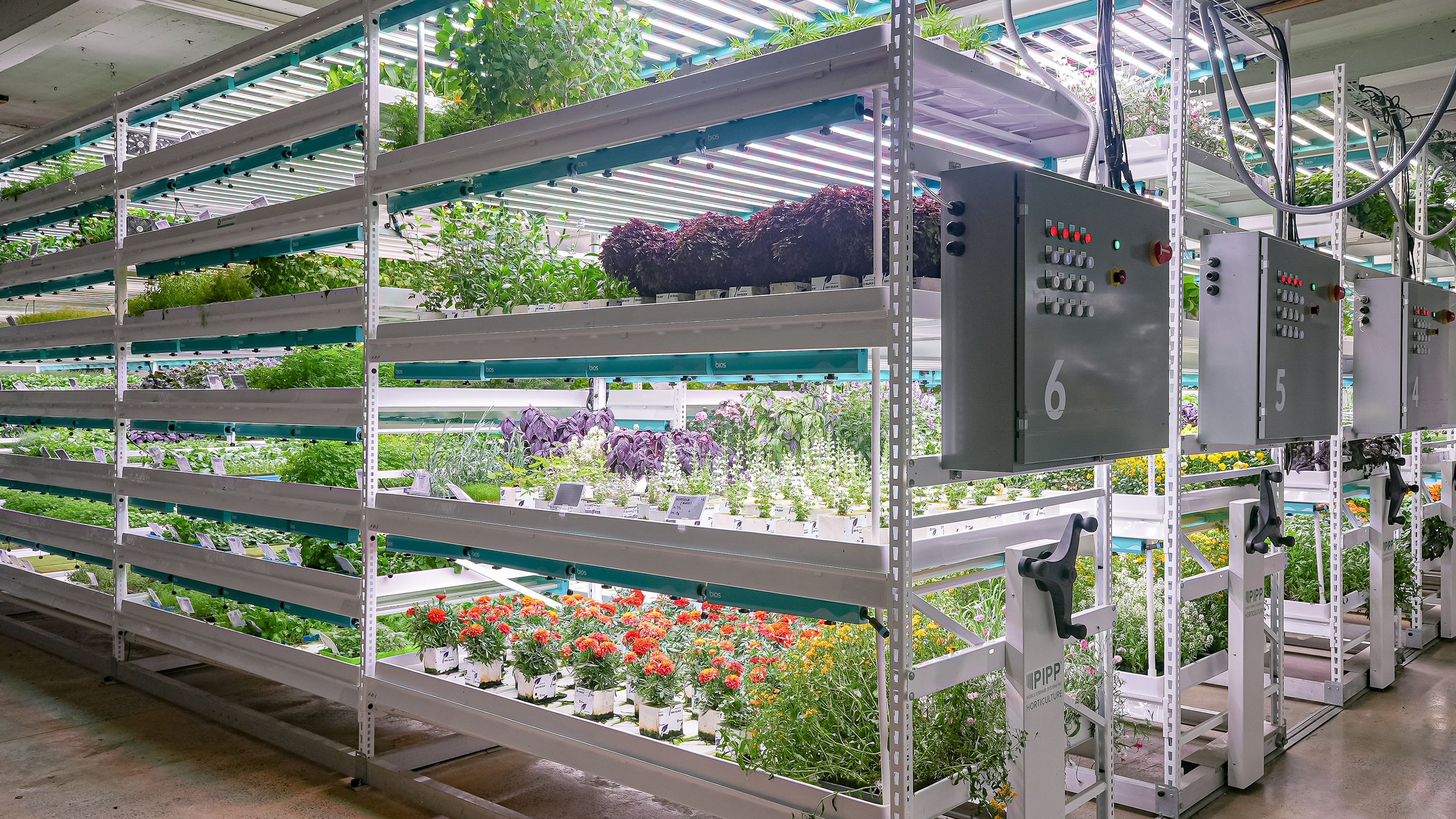
Credit: Farm One.
Written by: Dorothy Braun
April 20, 2023
The neighborhood farm is back! After experiencing the hardships brought about by Covid-19, Farm.One has returned to Brooklyn with their inspiring story of revival, access, and sustainability. Agritecture spoke with Rob Laing, founder and CRO of Farm.One, to learn more about what this reopening means for the farm and the surrounding community.
In 2015, Laing found inspiration in the world of rare produce, herbs, and flowers and sought a way to discover and access them outside of highly stylized restaurants.
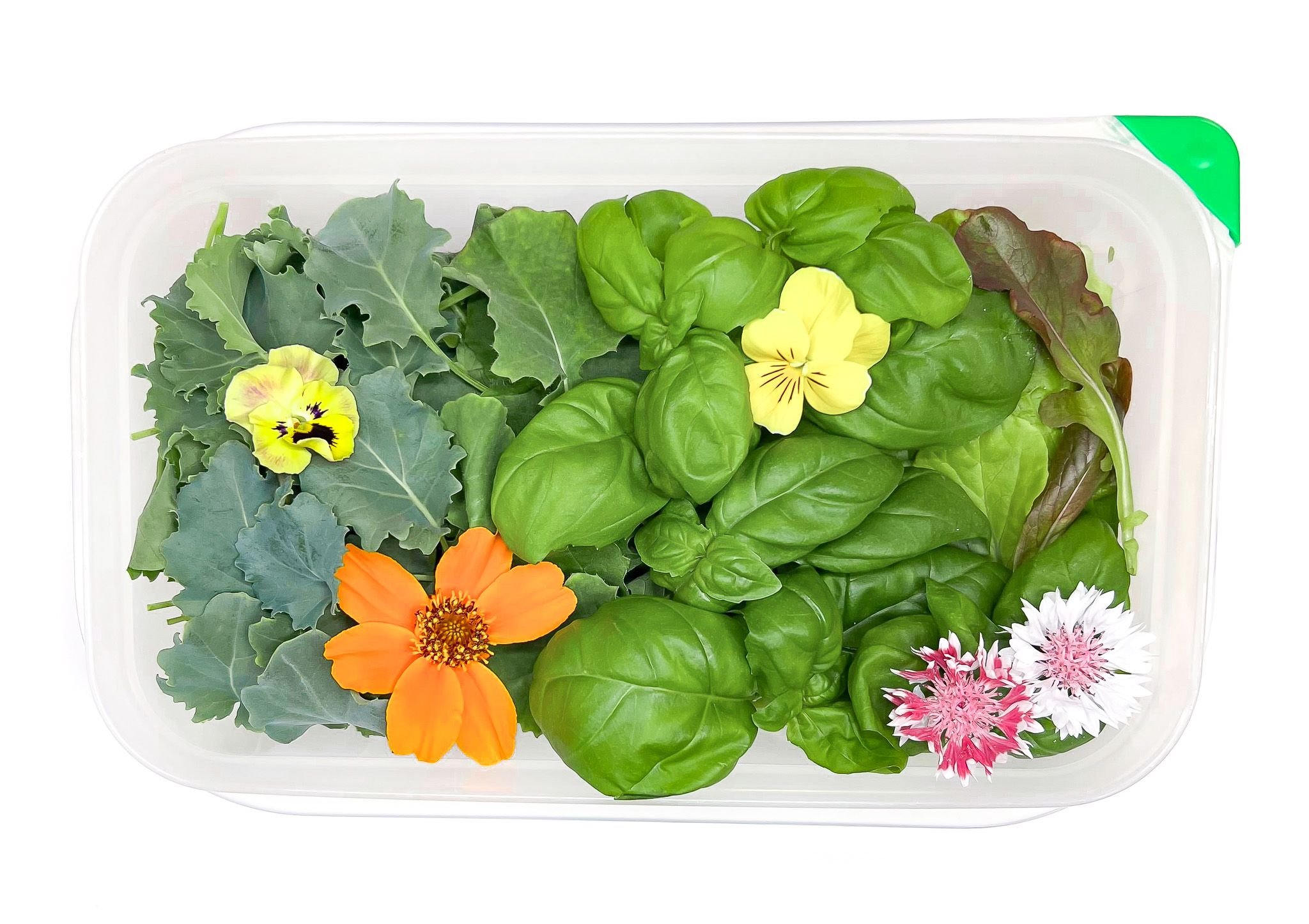
Credit: Farm One.
“I thought, wouldn’t it be great to use this new technology of vertical farming to bring these kinds of interesting products to the market and grow them locally? I started the company primarily focused on growing the most unusual and hard-to-find products. New York is one of the best food cities, but chefs often bring in produce from other states across the US, which tends to be less fresh than locally grown produce. Vertical farming allows you to grow right next to where people consume the product, and allows you to grow very fresh crops year round. I was really attracted initially to the potential of supplying these high quality, rare, and delicate things to my community,” says Laing. “There are so many different cultures that exist here in New York City, and we want to support and represent that diversity. When growing these unique herbs, we help to create more space and recognition for the breadth of cultural cuisine in the city.”
Farm.One’s original facility in Tribeca was quite small, and was solely providing produce to restaurants in the city.
When the pandemic hit, Laing and his team were forced to reevaluate their business model. With their primary clientele closing their doors, Farm.One turned to their community to provide herbs and greens direct to consumers. Covid was a turning point for many people, who likewise felt the global shift impacting their relationship to their food sources and motivated them to make more intentional choices as consumers. Farm.One’s subscription service tends to attract people who are keen home cooks and are eager to work with fresh ingredients on the same day they were harvested, straight from the farm.
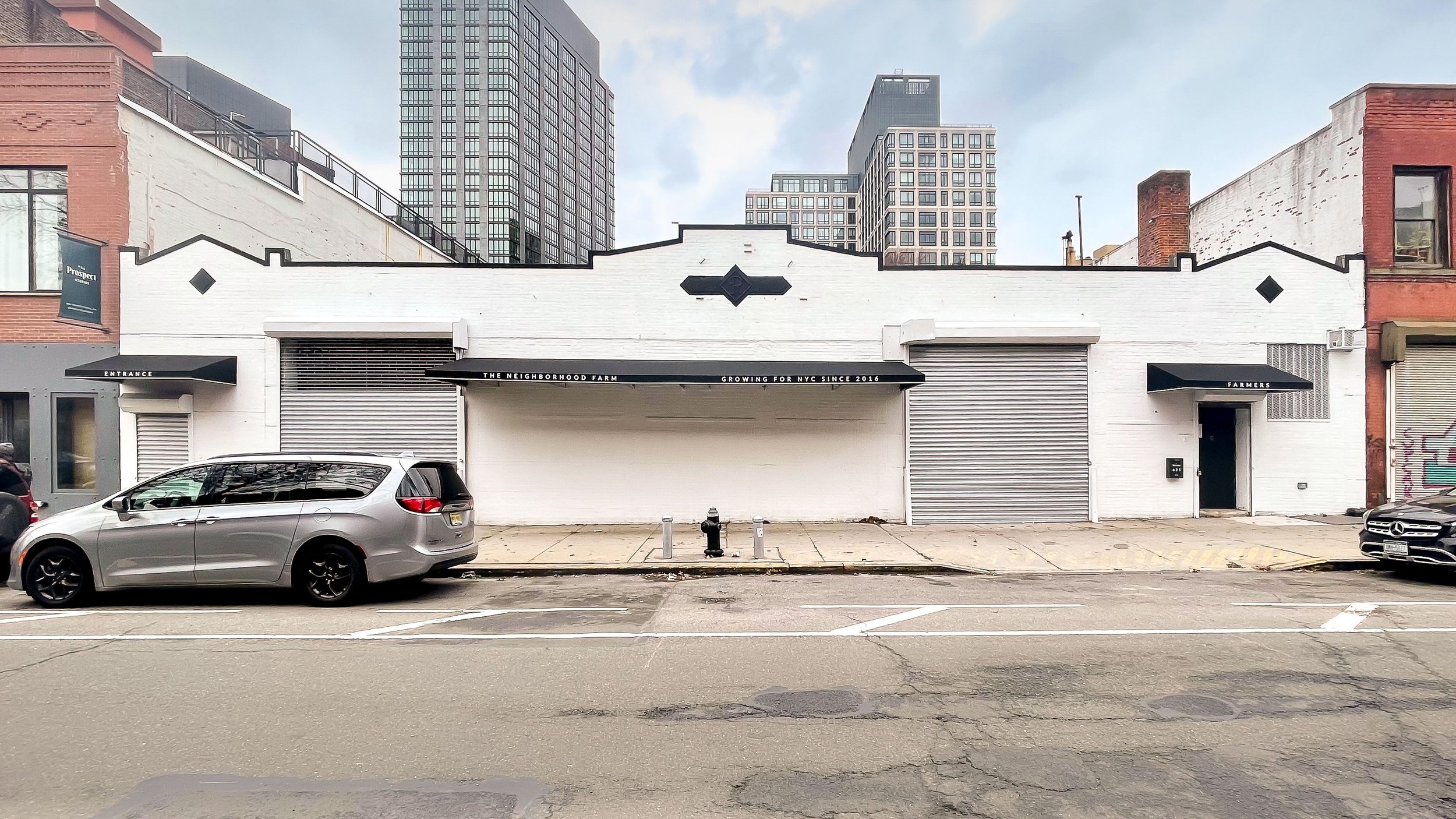
Credit: Farm One.
Unfortunately, Farm.One continued to struggle to stay afloat amidst the pandemic, and in February 2022, Laing made the difficult decision to close the farm, laying off the entire team and being left with a warehouse full of equipment. In the final hour, Derek Pitts, with deep experience in restructuring, capital markets, M&A, and organizational transition as Founder and Managing Partner of DK-Bell Holding, came along, saw the important potential in Farm.One’s mission, and made an investment towards reopening their doors.
Now, Farm.One’s facility in Prospect Heights, Brooklyn, provides significantly more grow space. Not only can they serve more restaurants and consumers, but it is also a highly visitable and shareable space.
“We can now host up to 70 people on the farm, with multiple events or classes happening simultaneously, so more people can access this experience. Most vertical farms are located in big, purpose-built buildings, slightly outside of cities, and aren’t visitable as a consumer. We try to make our farm open, accessible, and transparent, to really engage people from all walks of life in our community. We can bring in a whole class of school students, or a whole company team, to taste dozens and dozens of different plants and flavors. When we host school groups, many of the kids who have grown up in the city have had no contact with agriculture of any kind, and touring the farm can be an educational tool to learn the delicious benefits of eating fresh plants. Those moments when a kid realizes they can grab a leaf right off the plant and eat it are really special.”
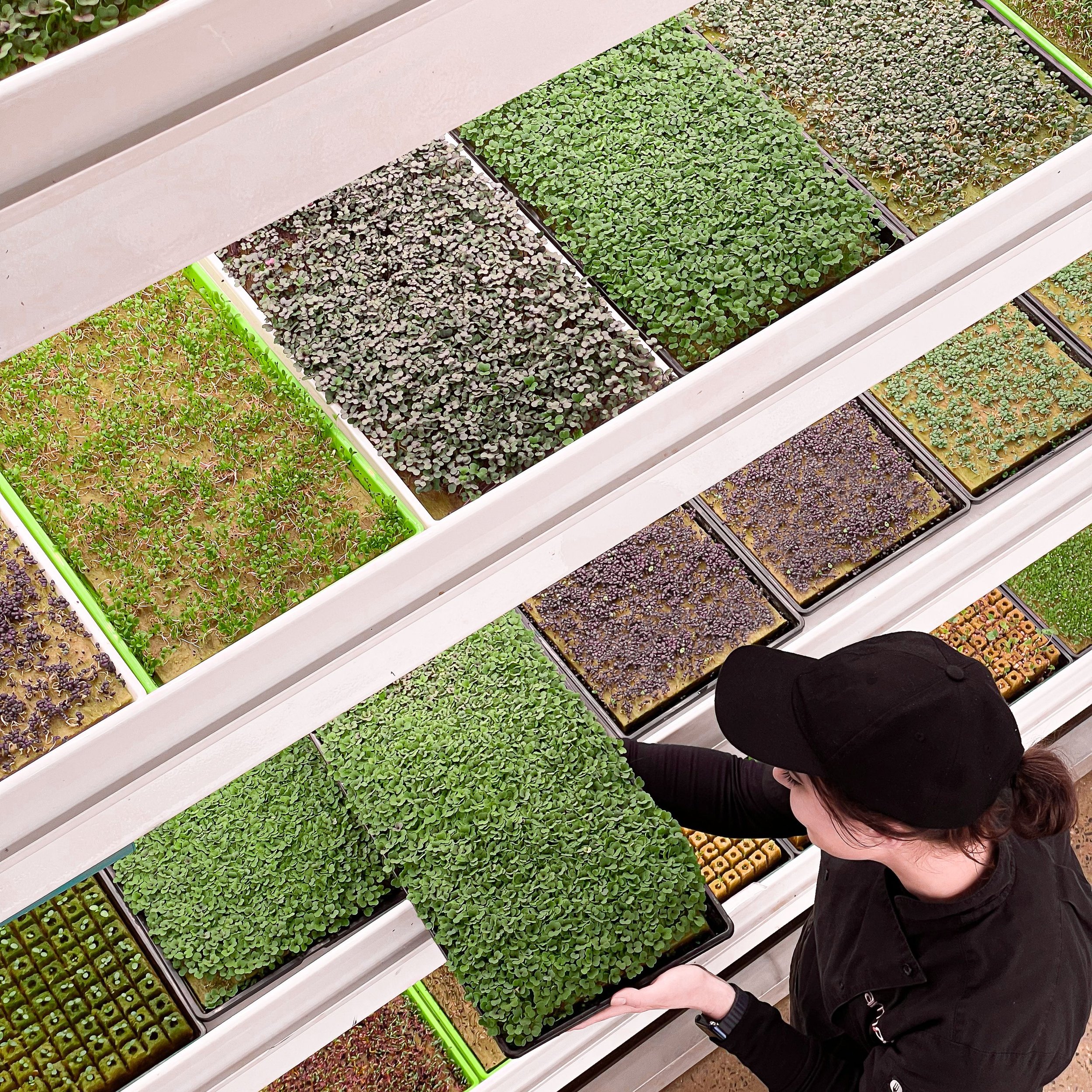
Credit: Farm One.
From the toothache plant, which is a bit fizzy and mouth-numbing, to nasturtium, a spicy mustard green, Farm.One communicates to visitors the expansive ways nature creates such powerful flavors.
“We are also a good complement to our location, being highly visible and adjacent to Vanderbilt Avenue, a bustling street with lots of restaurants and bars, closed to car traffic on the weekend to be pedestrian friendly. There is so much great food happening all around us, and we love to be part of a community that gets excited to experience a new aspect of their local food system.”
Farm.One delivers across New York City by bike and subway only.
Their mission to have zero delivery emissions is reflected in their direct-to-consumer business model, as Farm.One’s greens and herbs cannot be found in other distributors or grocery stores. Their sustainable practices are also present in their reusable container program – produce is sold in containers that are later picked up, sanitized, and reused – eliminating plastic waste from their food supply chain.
The VF industry has had a tough time over the last year, and Farm.One aims to be an opposing force to that big industry.
Instead of building huge facilities that are disconnected to the consumer, trying to approach this billion-dollar market, Laing and his team have taken a much closer, smaller, and thoughtful approach, confident that they can be profitable with their scalable model. When considering the original concept of vertical farming, to create agriculture in dense urban areas, it’s important to nurture the personal connection to the growing. Farm.One’s aim to cultivate community-driven vertical farming is the key to success and an indicator of how the industry as a whole may transform for the better.
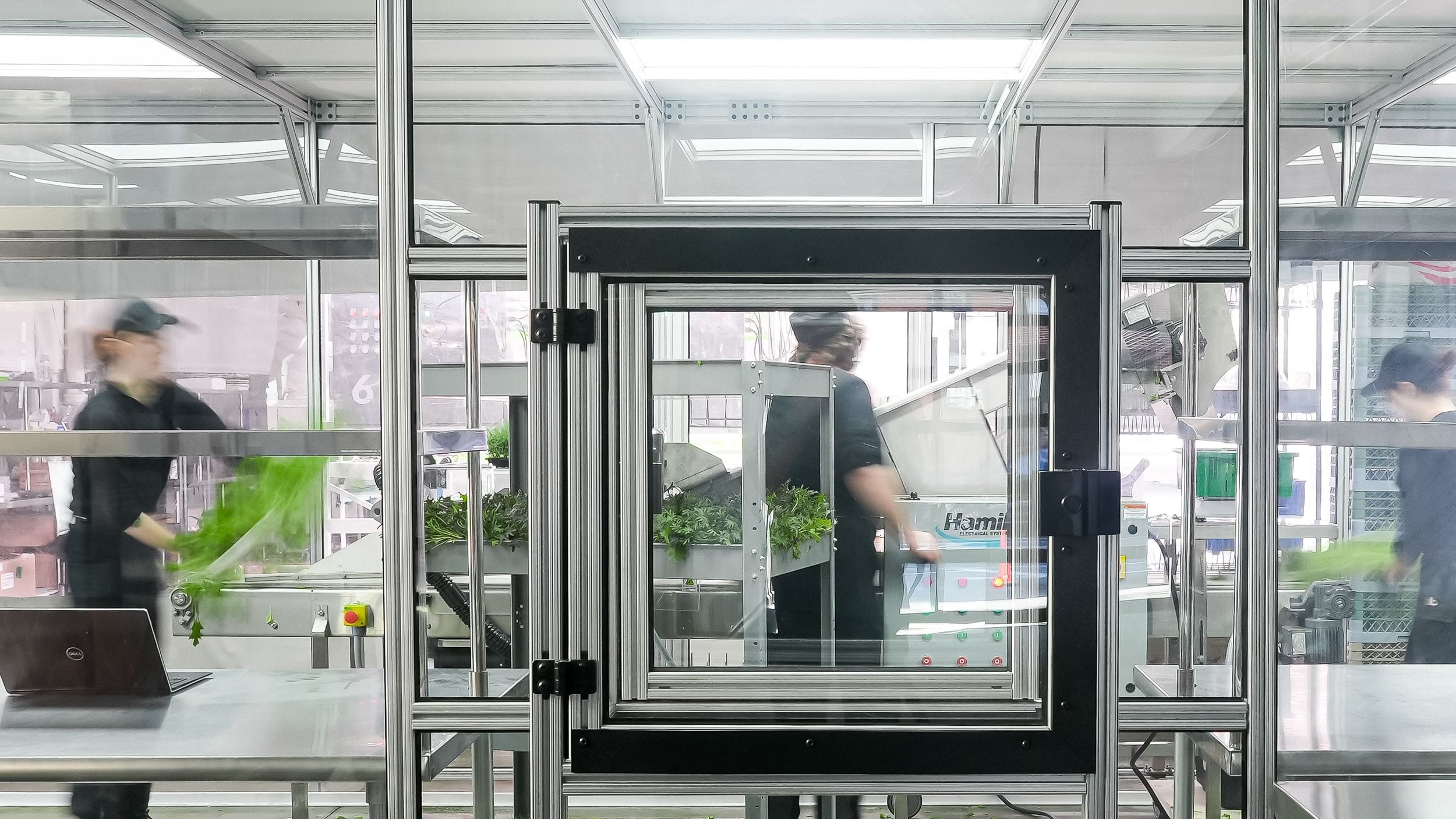
Credit: Farm One.
“It’s been an emotional process, but there has been so much joy in it coming back to life.”
This new era of Farm.One opens doors – quite literally – for the NYC community, local urban agriculture, and the vertical farming sector at large.
Looking to the future, Farm.One’s goal is to expand their mission into other cities.
“We believe that there should be a Farm.One in any neighborhood. We aspire to be found across the country, yet that doesn’t mean Farm.One is necessarily the exact same everywhere. Part of our approach is recognizing the diversity of these different communities and growing appropriate, neighborhood-friendly products. That’s why we call ourselves the neighborhood farm.”
